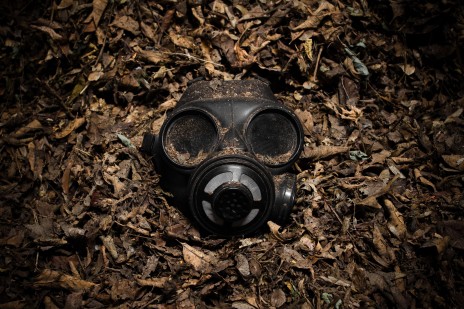
Does It Matter?, published in 1918 by Siegfried Sassoon, is a short poem of three stanzas. Written in second-person, it is an anti-war piece which emphasises the public’s perception towards wounded military veterans.
Does It Matter? | Summary
The poem is a sarcastic one, directed towards war veterans. It begins with a rhetorical question– the poet asks whether it matters if you lose your legs. After all, he says that people will still treat you kindly. And even when the others come in to eat after hunting- an activity you cannot do if you can’t walk- you can always act nonchalant, as though it does not bother you.
The next stanza asks yet another rhetorical question- “Does it matter?” This time, it asks whether it matters if you cannot see. Because despite losing your vision, there are many jobs that a blind person can do. And once again, people will always treat a blind person with kindness. And as you revisit old memories while sitting on the terrace, you will be able to turn your face completely towards the sun.
In the last stanza, the poet moves away from physical injuries. He asks whether your “dreams from the pit” truly matter. After all, those dreams can be forgotten if you drink enough, and while drinking you can be happy. People will not look down on you for it, because they know you are a war veteran who has fought for your country. You have gone through a lot, so they will not worry about your decisions.
Does It Matter? | Analysis
Siegfried Sassoon was a soldier during the First World War. His experiences both during the war and as a veteran often inspire his work- from satirical to compassioned, from proud to angry. This particular poem, Does It Matter?, is written in second-person, and through the use of a refraining rhetorical question, Sassoon directs it towards fellow war veterans. The tone is rather sarcastic- the main question is “Does it Matter?”, asked of physical and emotional injuries. Of course, the obvious answer is yes. But the reason for this question is to showcase the perception that the public has of war veterans, especially the wounded. Does it Matter? may be seen as an anti-war piece, as through the annoyance and scorn, the poet portrays his bitterness towards the aftereffects of war and how it affects the soldier’s life and position in society. Despite the tone of the poem, there is an underlying thread of compassion meant for any war veteran– a sign that there is someone, somewhere, who understands their pain, though it may not be the society they live in. Another theme is the efforts of soldiers who deserve to be honoured, but whose difficulties are overlooked and downplayed by society.
Does It Matter? | Analysis, Stanza 1
Does it matter?—losing your legs?…
For people will always be kind,
And you need not show that you mind
When the others come in after hunting
To gobble their muffins and eggs.
The first stanza begins with “Does it matter?—losing your legs?...”, quite a heavy start, but lightened by the semi-jibing tone. The answer would occur to one immediately: yes, of course it matters. It is the obviousness of the answer that leads the readers to the realisation of the sarcastic attitude. The following line is “For people will always be kind.” This is Sassoon’s interpretation of how the public treat veterans– with a careless yet often unintentional disregard for the frustration that may come with a physical limitation, thinking that all the difficulties would be solved by kind treatment. The poet is almost mocking the society- who cares about losing legs when the public is kind, he seems to scoff. This is not what he believes- it is how he perceives other people’s beliefs towards veterans.
“And you need not show that you mind when the others come in after hunting to gobble their muffins and eggs.” is the first stanza’s concluding line– this may be a representation of the ‘typical’ veteran: nonchalant and calm, as though their problems do not disturb them. As though it doesn’t matter that they, who once ran and jumped and fought, can no longer even walk the way everyone else does- when they are the one who fought to protect the country the others live in. “Hunting” does not refer to literal hunting, but simply to working or playing- any physical action that requires using legs. This also represents the way the public- whether it is family, friends or neighbours- does not realise the pain of a veteran. They carry on with their lives, working and then returning home to eat, and the veteran is expected to welcome them with a smiling face. These lines paint a mental image in the reader’s mind- a worn veteran at home, waiting for the others, but unable to join them.
Does It Matter? | Analysis, Stanza 2
Does it matter?—losing your sight?…
There’s such splendid work for the blind;
And people will always be kind,
As you sit on the terrace remembering
And turning your face to the light.
The second stanza begins with the same rhetorical question- a refrain. This time, though, rather than legs, the focus is vision: ”Does it matter?—losing your sight?…”. The following line emphasises the casualness and nonchalance with which the society looks at injured veterans- who are not just physically wounded, but riddled with the trauma of battle. “There’s such splendid work for the blind” implies that people truly do not understand the difficulty, going as far as to expect veterans to continue living their normal life after war, even if they are blind. They don’t look at it as a struggle, but as ‘just another post-war soldier back from the war field’. The poet repeats that people will always be kind, which underlines the theme of superficial kindness. At the end of the day, nobody steps forward to help or support these injured veterans. They simply act politely, almost sympathetic to their condition, and move on. The poet seems to suggest that people believe this constant kindness is enough to make up for the physical and emotional suffering. It also raises the question: with the way people forget the sufferings of war veterans and expect them to continue with life, is this kindness and sympathy due to the noble act of fighting for the country? Or is it because of the visible injury?
”As you sit on the terrace remembering and turning your face to the light.”- this line depicts the recall of old memories. Soldiers often experience Post-Traumatic Stress Disorder from the traumatic memories of battle. It could be in reference to that, or just in reference to painful reminiscence. “Turning your face to the light” highlights the blindness, as it is impossible to look at the sun directly without harming one’s vision. Therefore, only if one is blind can they ‘face the sun.’ It is rather a cruel inference, which ties in with the way society attempts to ‘find positivity’ or reassure veterans that everything is fine, they can do many things which others cannot- but rather than comforting, it is very insensitive. It also conjures a heartbreaking imagery- usually, glancing up to the sky or towards the lights indicates a longing for freedom, a ray of hope. In this case, it may be a longing for the past by the veteran, who wishes to return to the life of full capacity.
Does It Matter? | Analysis, Stanza 3
Do they matter?—those dreams from the pit?…
You can drink and forget and be glad,
And people won’t say that you’re mad;
For they’ll know you’ve fought for your country
And no one will worry a bit
The last stanza begins with the same refrain, but a different variation- from singular to plural, and from physical injuries to an emotional element. “Do they matter?—those dreams from the pit?…” This can be interpreted in two ways, but both with the same sorrowful conclusion. The dreams from the pit may be the longing and hopes the veteran once had in the back of his mind, all of which were dashed after war, or the nightmares from the trenches, with ‘pit’ referring to the actual barracks and battlefield. The dreams are the traumatic memories. Either way, with the sarcastic manner in which ‘do they matter’ is asked, the answer is already evident: it matters to the soldier, but to nobody else.
The following line has a huge impact- “You can drink and forget and be glad, and people won’t say that you’re mad”. This shows very clearly that nobody but veterans themselves will be able to understand how distressing and scarring it is. People assume it is something so easy to forget that drinking will do the trick– which is completely untrue. And once again, similar to “people will be kind”, the line “people won’t say that you’re mad” treats the veteran status as a social merit for instantaneous kindness and understanding, which, at the end of the day, it is not. It rather suggests complete ignorance of the different lives that veterans live, and is a downplay of their struggles. It is all superficial– there is no further aid. “For they’ll know you’ve fought for your country and no one will worry a bit.” suggests that people do not worry about veterans, whether they drink or not, what their condition is- they have fought for their country, and are strong enough to sustain. They may do whatever they want. This assumption from society is void of compassion or even the willingness to understand. Here, we can think back to the line “For people will always be kind.” and wonder, is it even true kindness? There is no empathy, no solitude, no real concern. It seems to be nothing more than a surface obligation- a misconception of veterans and an inadvertent but cruel disregard.



